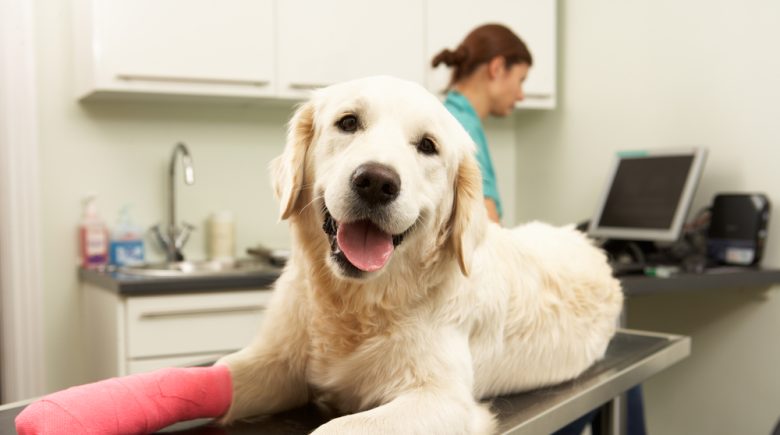There are several benefits of a general insurance that come to mind right away. For example:
- Individual Protection:
If your pet is ever hurt in an accident, you can get some money back with insurance. Damage to third parties and property damage caused by an insured’s carelessness are covered by general liability insurance. You are shielded from losses that are not covered by the policy as a result of this. - Material Goods:
All of your personal belongings in the car are considered personal property. This includes your pets and everything else you’ll use often. Personal property insurance is crucial because small items frequently cause a lot of damage in accidents. - Medical Costs:
Assume you want clinical consideration, including pet consideration, after a mishap. In that scenario, general liability insurance might pay for some or all of the costs incurred as a result of damages or injuries brought on by someone else’s carelessness. Individual injury protection may likewise cover comparative costs on the off chance that they have been brought about by you or by one more safeguarded part’s activities or inactions, paying little heed to blame. - Coverage for Collision:
The costs associated with vehicles that have been destroyed or damaged can be covered by collision insurance. This includes the cost of a rental car, towing, and any other costs incurred in the event of an accident. - Complete Protection:
Complete inclusion can help pay for any harms related with your vehicles, like defacement or robbery. It only pays out if you lose, so if you don’t have too many claims, it can lower your premiums. Pets are sometimes covered by homeowner’s insurance because they are considered a part of your family. However, animals and other household possessions are not covered by many policies. Pet insurance is offered by some companies; However, before making a purchase, be sure to read the fine print. - Passing Advantage:
Only those who pass away as a result of another person’s carelessness are entitled to this benefit. It pays out regardless of whether the beneficiary is already deceased if the insured passes away within five years of the accident or the cause of death. - Additional Advantages:
Medical visits, physical examinations, prescriptions, funeral costs, and counseling for emotional distress or mental trauma resulting from an accident with your pet may be covered by some insurance companies as additional benefits.
Purchasing pet insurance can be a difficult decision. At first glance, the benefits you might receive might not seem like much. However, choosing the right policy is crucial, just as it is with most financial decisions.
There are currently a number of different kinds of insurance policies on the market, each with its own set of benefits and drawbacks. Several inquiries must be answered before selecting a particular policy:
- a. Do I have a medium or huge variety canine?
- b. Would I like my pet to be covered?
- c. What is the amount of my deductible?
- d. How much do I want to pay for insurance each year?
General Pet Insurance Types
- Comprehensive:
This covers the costs associated with a claim as well as the damages caused by your pet. If you have to take your pet to the hospital, this includes the cost of transportation as well as any future veterinary bills. You will only be reimbursed for the first damages that exceed the one deductible because comprehensive coverage can only cover up to one deductible. - Collision:
In the event of an accident involving your vehicle, collision coverage covers injuries to pedestrians or other vehicles. It also helps cover things inside the car that are lost or stolen, like tires and windows, but it does not cover losses caused by vandalism or theft. - Comprehensive:
Flooding and theft are two examples of losses that are covered by comprehensive insurance. It also helps pay for any injuries or damages to the vehicle and its contents caused by your pet. - Material Goods:
This covers anything personal that wasn’t damaged or lost in the accident. Loss of use coverage covers your belongings; They cover costs like temporary housing and meals, among others. If comprehensive insurance is purchased, it may cover the damage, but pets in an accident do not qualify for coverage. Appliances and expensive items like jewelry and artwork, which may not be covered by home insurance policies, are examples of personal property. - Medical Costs:
This pays for your pet’s medical bills if it gets hurt in an accident with another vehicle or a pedestrian. Costs associated with taking your pet to the veterinarian after an accident can also be included in medical expenses. - Excessive Risk:
Overabundance responsibility inclusion, all the more regularly known as umbrella inclusion, is planned to assist with safeguarding you from paying more than your deductible for a case. This kind of insurance only pays out if your claim is more than the amount you paid for the policy in the beginning. Consequently, assuming that the worth of a harmed thing is not exactly the sum you initially paid for protection, umbrella inclusion won’t pay anything out on that case.
General protection may not furnish you with much inclusion for your pet. Exploring various strategies and organizations to track down the smartest idea to accommodate your ongoing spending plan while giving you the ideal inclusion is ideal. Taking the time to read your policy carefully and making sure you know what it covers and doesn’t cover is important. It is also critical that you take the time to learn exactly what your insurance policies cover and do not cover, as well as what other types of coverage your company might offer.
There are several benefits of a general insurance that come to mind right away. For example:
- Individual Protection:
If your pet is ever hurt in an accident, you can get some money back with insurance. Damage to third parties and property damage caused by an insured’s carelessness are covered by general liability insurance. You are shielded from losses that are not covered by the policy as a result of this. - Material Goods:
All of your personal belongings in the car are considered personal property. This includes your pets and everything else you’ll use often. Personal property insurance is crucial because small items frequently cause a lot of damage in accidents. - Medical Costs:
Assume you want clinical consideration, including pet consideration, after a mishap. In that scenario, general liability insurance might pay for some or all of the costs incurred as a result of damages or injuries brought on by someone else’s carelessness. Individual injury protection may likewise cover comparative costs on the off chance that they have been brought about by you or by one more safeguarded part’s activities or inactions, paying little heed to blame. - Coverage for Collision:
The costs associated with vehicles that have been destroyed or damaged can be covered by collision insurance. This includes the cost of a rental car, towing, and any other costs incurred in the event of an accident. - Complete Protection:
Complete inclusion can help pay for any harms related with your vehicles, like defacement or robbery. It only pays out if you lose, so if you don’t have too many claims, it can lower your premiums. Pets are sometimes covered by homeowner’s insurance because they are considered a part of your family. However, animals and other household possessions are not covered by many policies. Pet insurance is offered by some companies; However, before making a purchase, be sure to read the fine print. - Passing Advantage:
Only those who pass away as a result of another person’s carelessness are entitled to this benefit. It pays out regardless of whether the beneficiary is already deceased if the insured passes away within five years of the accident or the cause of death. - Additional Advantages:
Medical visits, physical examinations, prescriptions, funeral costs, and counseling for emotional distress or mental trauma resulting from an accident with your pet may be covered by some insurance companies as additional benefits.
Purchasing pet insurance can be a difficult decision. At first glance, the benefits you might receive might not seem like much. However, choosing the right policy is crucial, just as it is with most financial decisions.
There are currently a number of different kinds of insurance policies on the market, each with its own set of benefits and drawbacks. Several inquiries must be answered before selecting a particular policy:
- a. Do I have a medium or huge variety canine?
- b. Would I like my pet to be covered?
- c. What is the amount of my deductible?
- d. How much do I want to pay for insurance each year?
General Pet Insurance Types
- Comprehensive:
This covers the costs associated with a claim as well as the damages caused by your pet. If you have to take your pet to the hospital, this includes the cost of transportation as well as any future veterinary bills. You will only be reimbursed for the first damages that exceed the one deductible because comprehensive coverage can only cover up to one deductible. - Collision:
In the event of an accident involving your vehicle, collision coverage covers injuries to pedestrians or other vehicles. It also helps cover things inside the car that are lost or stolen, like tires and windows, but it does not cover losses caused by vandalism or theft. - Comprehensive:
Flooding and theft are two examples of losses that are covered by comprehensive insurance. It also helps pay for any injuries or damages to the vehicle and its contents caused by your pet. - Material Goods:
This covers anything personal that wasn’t damaged or lost in the accident. Loss of use coverage covers your belongings; They cover costs like temporary housing and meals, among others. If comprehensive insurance is purchased, it may cover the damage, but pets in an accident do not qualify for coverage. Appliances and expensive items like jewelry and artwork, which may not be covered by home insurance policies, are examples of personal property. - Medical Costs:
This pays for your pet’s medical bills if it gets hurt in an accident with another vehicle or a pedestrian. Costs associated with taking your pet to the veterinarian after an accident can also be included in medical expenses. - Excessive Risk:
Overabundance responsibility inclusion, all the more regularly known as umbrella inclusion, is planned to assist with safeguarding you from paying more than your deductible for a case. This kind of insurance only pays out if your claim is more than the amount you paid for the policy in the beginning. Consequently, assuming that the worth of a harmed thing is not exactly the sum you initially paid for protection, umbrella inclusion won’t pay anything out on that case.
General protection may not furnish you with much inclusion for your pet. Exploring various strategies and organizations to track down the smartest idea to accommodate your ongoing spending plan while giving you the ideal inclusion is ideal. Taking the time to read your policy carefully and making sure you know what it covers and doesn’t cover is important. It is also critical that you take the time to learn exactly what your insurance policies cover and do not cover, as well as what other types of coverage your company might offer.



